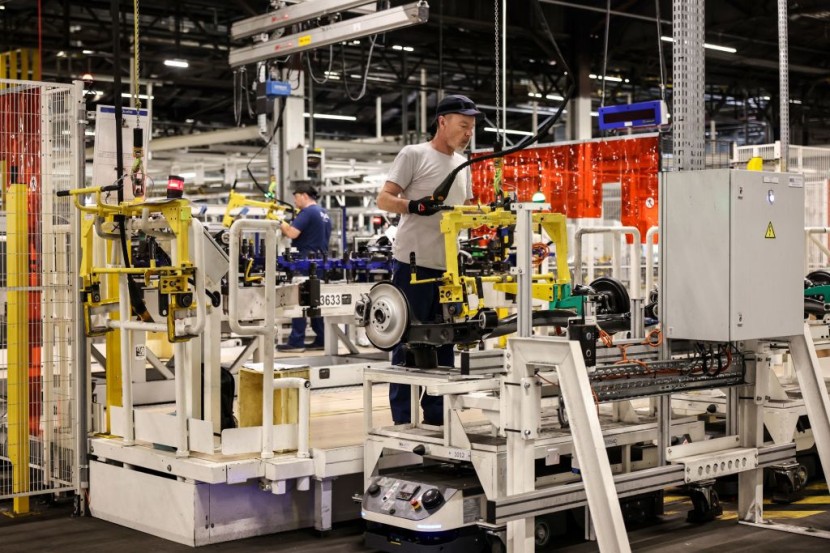
(Photo: by ARNAUD FINISTRE/AFP via Getty Images) Employees are at work on the production line of the new Peugeot e-3008 electric car on September 12, 2023, at the Stellantis factory in Sochaux, France.
Automobile manufacturers will start providing French authorities with the technical details of their electric vehicles on Tuesday in the hopes that they can continue to get subsidies under the new rules, which are likely to push out many Chinese models.
The environmental score of each model will be based on the entire production cycle, taking into account carbon emissions for the transportation of the automobiles as well as the materials and energy sources used to produce them, in the face of intense competition in the electric vehicle (EV) industry, as reported by Reuters.
Even if they are some of the most popular electric car models in France, the score, which is automatically computed by a dedicated web platform, is likely to exclude the majority of models made in Asia, a government source said.
The most popular EV models in France include the Model Y and Model 3 from Tesla, the Dacia Spring, and the SAIC group's steadily rising MG4. All of these vehicles are made in China.
For most households, the government provides an electric car subsidy of 5,000 euros ($5,270), and for poorer households, 7,000 euros.
The auto industry should hear back around December 15, and any unfavorable ruling will be subject to appeal.
The initiative was initially presented by French President Emmanuel Macron in May. He claimed that it was necessary to avoid using "French taxpayers' money" to support auto manufacturing outside of the EU.
Officials from France have emphasized that the new policy will comply with WTO regulations.
Read also: Sweden's Flat-Pack Cars: A New Era of Affordable and Sustainable Transportation?
Korea Voices Concerns
According to industry officials and trade experts, Korea is voicing severe concerns over France's proposed adjustment of electric vehicle (EV) subsidies since it may be in violation of the Korea-European Union (EU) Free Trade Agreement (FTA) last month.
The European Korean Business Association (KBA) and the Brussels office of the Korea International Trade Association (KITA) both provided comments on the French government's proposed revision to the terms for EV subsidies on Friday.
The Korea-EU Free Trade Agreement mandates non-discriminatory treatment for goods produced in both countries, according to KITA and European KBA. In contrast to EVs made in France and other EU nations, Korean EVs may experience discrimination under this draft. They requested that the final regulations not include any discriminatory measures against Korean products.
This action is mostly perceived as a response to the rapid spread of Chinese electric vehicles in Europe. It is known as the French equivalent of the Inflation Reduction Act (IRA) domestically.
"Hyundai Motor Group is currently in discussions with relevant agencies, including the Ministry of Trade, Industry, and Energy, and plans to formulate response measures by June next year when the regulations are fully implemented," an official with the Hyundai Motor Group stated.
Related article: Hyundai, Kia Recall Over 3.3 Million Cars Due to Fire Risk; Owners Advised to Park Outside








